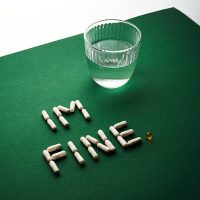Just Because You Feel Fine, Doesn’t Mean That You Are

Imagine that you are in a car accident, or a fall, or some other kind of accident. Immediately after the accident, you take a deep breath, move around a bit, and thankfully, feel no pain or irregularity. It looks like you made it out of the accident unharmed.
Or did you?
No Pain at First?
There is a misconception that when we are injured, we will immediately feel incredible pain, and that the amount of pain that we have right after an accident, correlates with the extent of our injuries—the more pain we immediately feel, the more injured we must be.
But that’s not how accidents, or the human body, actually work.
In fact, there are a number of injuries that are very slow to develop, and where you may be in little, or even no pain, immediately after the accident.
Brain Bleeds and Injuries
A classic, and deadly example of this, are injuries to our brains. In almost every kind of accident, our heads sustain some degree of trauma—whether it’s direct trauma, or the head being thrashed back and forth. When that happens, the brain can impact the skull that surrounds it.
At first, the victim may feel just fine. In fact, initial X-rays at the emergency room may even show nothing abnormal at all. But what the victim doesn’t know is that the brain is very slowly bleeding.
There have been a number of instances where that small bleed gets bigger, and bigger, and over time, someone who just a few hours ago seemed fine, is pronounced dead, as the bleeding gets worse, and puts too much pressure on the brain.
Injuries to Ligaments and Tendons
Your ligaments and tendons are like any other part of the tissue in your body. A small tear may not, at first, be very painful. But afterwards, the swelling starts to increase. The area gets red and swollen. Now the pain starts.
The ligaments inside your body act the same way as any injury outside of your body; after, say, a car accident, you may not feel much pain at all. But it isn’t uncommon for someone to wake up the next day in much more pain than they were in immediately after the accident.
Internal Bleeds
The organs in your body can also bleed slowly. Like the brain, these bleeds may not be picked up at first by emergency room diagnostic tests. But as the slow bleed inside of you gets worse, your body cavity begins to fill with blood, creating a potentially deadly situation—both because of the blood now free in your system, and because you are technically “losing” blood; even though it’s still in your body, it is not in your bloodstream, so it is not being pumped to where it needs to go.
The lesson with all of these injuries is to get medical help after an accident—even if you feel “just fine” immediately after an accident.
We understand your injuries, and what you are going through after an accident. Contact our Rhode Island personal injury lawyers at Robert E. Craven & Associates at 401-453-2700 today.
Sources:
healthline.com/health/internal-bleeding
my.clevelandclinic.org/health/diseases/10265-back-strains-and-sprains

